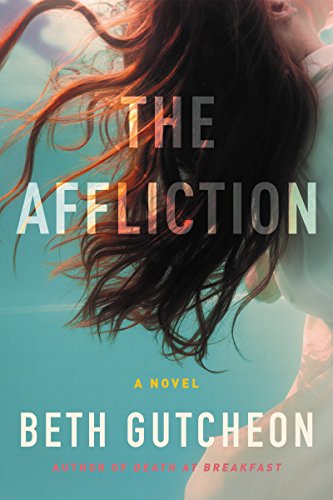Books |
The Affliction
Beth Gutcheon
By
Published: Mar 12, 2018
Category:
Fiction
When we last saw Maggie Detweiler and her old friend Hope Babbin, the recently retired private school head and the socialite were investigating a murder at the Oquossoc Mountain Inn in Maine, and I was rapidly turning the pages of Death at Breakfast, eager to see them crack the case. As longtime Butler readers know, this was odd, because I have very modest interest in mysteries and even less in mysteries starring amateur detectives of advanced years who are well-bred, uninterested in sex and not much fun at parties. Some readers may also know that Beth Gutcheon and I have been friends for more than half a century. I will, therefore, read anything she writes.
I may have opened ”Death at Breakfast” out of friendship, but I stayed for the fun. Maggie and Hope aren’t like the biddies of old English mysteries, picking up clues over tea and stuffing them for safekeeping in their knitting baskets. They’re sharp and youthful, and the good news is that they’re even sharper in “The Affliction.”
The title refers to a teacher at the Rye Manor School, a failing boarding school for girls within limousine distance of Manhattan. It’s her nickname — she’s chatty — and also, her affect on the life of the school. For just as Rye Manor is being evaluated, with Maggie as one of the evaluators, this teacher is murdered, with her body found at the bottom of the school’s swimming pool. Whodunnit is the least of the pleasures here; everything about Rye Manor is grist for the kind of observation that Edith Wharton perfected and Dominick Dunne modernized. [To read Chapter 1, click here. To buy the book from Amazon, click here. To buy the Kindle edition, click here.]
There are trustees of the school who have Secret Service protection. No shock that there will be meals at the Members Dining Room at the Metropolitan Museum. Crooked art dealers. Men named Angus, women named Avis. The girls talk like my daughter. The local cops are delightfully smarter than you think local cops might be. And of course someone wants “a mache salad with crostini and warm goat cheese.”
The plot? Appopriately complicated. Satisfyingly — and surprisingly —resolved.
But the biggest pleasure of “The Affliction” is… the writing. You’re reading along, following the story, and suddenly get you lines like this….
“My stepson went to Andover and then Princeton, and now he’s at Goldman. He could have done so many useful things beside mint money.”
“Her accountant told her that she should fly first class, or her children would.”
“He had a permanent front-row seat plus a backstage pass to the parties he wasn’t invited to.”
And many more. You thought people like this had died out? Not quite. In “The Affliction,” they’re roasted like wieners on an open fire.


